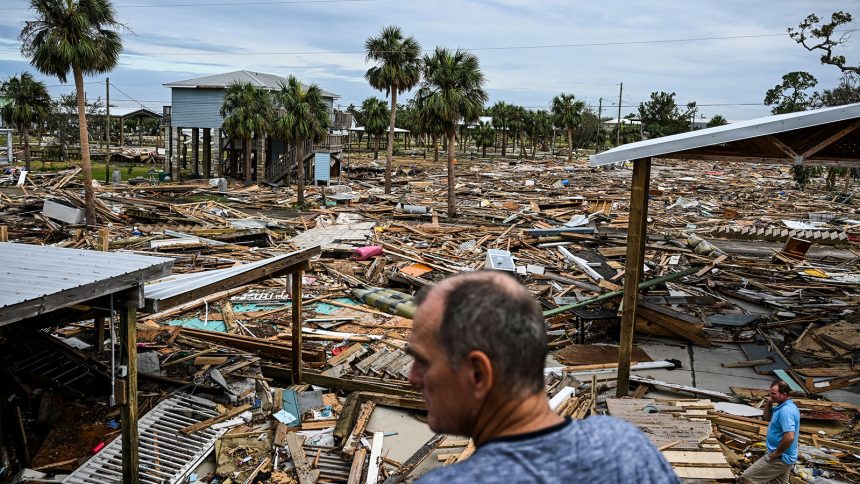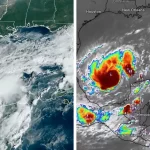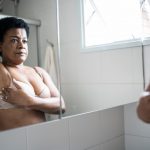Chelsy Robison found herself seeking shelter in an abandoned building at the Paradise Park mobile home campground in Perry, Florida, on the evening of September 26. She could hear the deafening 140 miles-per-hour winds ravaging through the Big Bend region. Recovering from hernia surgery, she, along with her boyfriend, Steve, and their dog, Judah, had evacuated their trembling trailer just hours before the storm hit, fearing its destruction. The aftermath of Hurricane Helen brought a devastating scene – neighbor’s walls demolished, communal building’s roof panels torn off, and a nearby trailer flipped upside down. Miraculously, Robison’s trailer was unscathed among the wreckage.
Robison, who had lost everything in Hurricane Idalia the previous year, expressed relief that the damage was minimal compared to the previous devastation. However, barely two weeks later, the region is now bracing for Hurricane Milton, expected to bring more chaos and destruction to an area already deeply impacted by Helen.
The Florida’s Big Bend region, where Robison resides, predominantly comprises lower-income residents living in manufactured homes. The vulnerability of manufactured housing in climate disasters is a pressing issue as these homes lack the same stability and protective features as conventional homes. The precarious nature of mobile homes becomes even more apparent when residents don’t own the land beneath their homes.
The shortage of affordable housing has forced many people to turn to manufactured homes, exacerbating the problem when faced with extreme weather events. Victims of such disasters often find themselves trapped in a cycle of substandard living conditions and displacement. The complications in financing a manufactured home further hinder the recovery process after a disaster.
The rising cost of materials has made repairing or replacing damaged homes more difficult for many low-income residents. FEMA has become a major provider of manufactured homes for disaster victims like Robison, but the use of these “FEMA trailers” has drawn criticism for not being a permanent solution. Florida’s emergency officials are seeking alternatives to FEMA trailers to provide more sustainable housing options for those affected by hurricanes.
In the aftermath of Hurricane Helene, the Big Bend’s manufactured housing landscape is rapidly changing with an influx of FEMA trailers. The owner of Paradise Park, Todd Mikola, is working to make room for more trailers by clearing debris and damaged homes. The intersection of climate disasters, housing crisis, and economic disparities is evident in the struggles of those living in manufactured homes in Florida’s Big Bend region.






